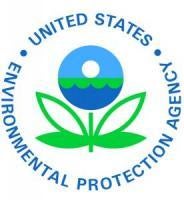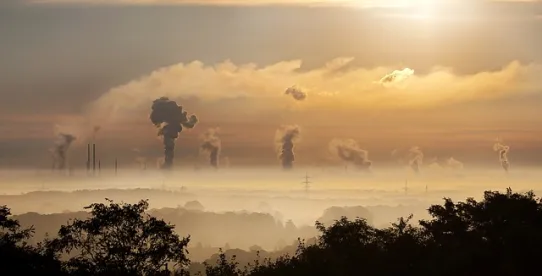WASHINGTON — The U.S. Environmental Protection Agency (EPA), the U.S. Department of Justice, and the Mississippi Department of Environmental Quality (MDEQ) announced a national settlement with Chevron U.S.A. Inc. (Chevron), that requires safety improvements at all its domestic refineries. This resolves claims that the company violated provisions of the Clean Air Act aimed at preventing accidental releases of hazardous chemicals that can have serious consequences for public health and the environment.
As part of the proposed settlement, Chevron will spend approximately $150 million to replace vulnerable pipes, institute operating parameters and alarms for safer operation, improve corrosion inspections and training, centralize safety authority within the corporation, conduct a pilot study of safety controls for fired heaters, and make other safety improvements at all its domestic refineries. Chevron also will pay a $2.95 million civil penalty and will implement supplemental environmental projects worth at least $10 million in the communities surrounding the refineries in California, Mississippi, Utah, and Hawaii. The overall value of this settlement exceeds $160 million, which makes it the largest settlement in the history of the EPA’s enforcement of the Risk Management Plan Rule under Clean Air Act Section 112r.
EPA’s initial investigation was spurred by an August 6, 2012 fire involving high-temperature hydrocarbons released in the Crude Unit at Chevron’s Richmond, California refinery. That fire prompted a shelter-in-place order by Contra Costa County officials, endangered 19 employees, and caused 15,000 local residents to seek medical attention. During EPA’s investigation, Chevron experienced accidental releases of regulated chemicals at two of its other refineries, including a 2013 explosion and fire in Pascagoula, Mississippi that caused the death of employee Tonya Graddy, and a 2013 rupture in El Segundo, California that caused a loss of power and flaring at the refinery.
“This case demonstrates the importance of performing equipment inspections and maintenance in accordance with environmental regulations,” said EPA Office of Enforcement and Compliance Assurance Assistant Administrator Susan Bodine. “Under this settlement Chevron, U.S.A Inc. will improve their safety systems and monitoring equipment, protecting their employees and the surrounding communities.”
“The Clean Air Act’s hazardous chemical risk management program is intended to protect local communities and American workers,” said Acting Assistant Attorney General Jeffrey H. Wood for the Justice Department’s Environment and Natural Resources Division. “Today’s action, taken jointly with our enforcement partners at EPA and the State of Mississippi, strengthens emergency prevention and response systems at Chevron’s U.S. refineries, which will help to protect their workers and the communities in which they live from dangerous chemical accidents.”
“The 2012 fire at Chevron’s refinery in Richmond, California, heavily affected the surrounding area,” said United States Attorney Alex G. Tse of the Northern District of California. “Thousands of residents were ordered to shelter in place and over 15,000 nearby residents sought medical assistance. Under the agreement announced today, among other relief, Chevron will make safety improvements at its refineries, and will also implement supplemental environmental projects in the affected communities, including Richmond. This office will continue to ensure compliance by corporate citizens with laws that are intended to protect the environment and the residents’ right to know.”
The United States’ and Mississippi’s Complaint, filed concurrently with the proposed settlement today in the United States District Court for the Northern District of California, alleges violations of Section 112(r) of the Clean Air Act. Section 112(r) requires covered facilities to implement a systematic Risk Management Program to prevent accidental releases of dangerous substances, and to meet a general duty of care in designing and maintaining safe facilities. The Mississippi Department of Environmental Quality participated as co-plaintiff, exercising its concurrent authority to enforce the Risk Management Program regulations over Chevron’s Pascagoula refinery. This is the first case in which the United States and a state have jointly brought suit to enforce these provisions.
The proposed settlement also resolves claims under the Comprehensive Environmental Response, Compensation, and Liability Act (CERCLA) and the Emergency Planning and Community Right-to-Know Act (EPCRA) regarding delayed reporting of an August 2, 2012, hydrogen sulfide release from Chevron’s Richmond facility.
The Supplemental Environmental Projects that Chevron has agreed to perform, valued at $10 million, will supply emergency response equipment to local jurisdictions surrounding the five subject refineries.
Chevron U.S.A. Inc. is the subsidiary of Chevron Corporation that owns and operates the corporation’s U.S. petroleum refineries. Chevron Corporation is the second-largest integrated energy company in the United States, and Chevron U.S.A. Inc. is the sixth-largest U.S. refiner as measured by crude oil distillation capacity. The proposed settlement covers all four Chevron U.S.A. Inc. refineries, which are located in Richmond and El Segundo, California; Pascagoula, Mississippi; and Salt Lake City, Utah; as well as a fifth refinery formerly owned and operated by Chevron, located in Kapolei, Hawaii. The Richmond component of the settlement builds on the relief achieved by previous state enforcement actions, including a 2013 criminal settlement with the California Attorney General’s Office and the District Attorney for Contra Costa County, and a 2017 settlement with the California Department of Industrial Relations, Occupational Safety and Health Division.
The proposed consent decree was lodged today in the U.S. District Court for the Northern District of California and is subject to a 30-day public comment period and final court approval. Information about submitting a public comment is available at: https://www.justice.gov/enrd/consent-decrees. More information about the settlement may be found at: https://www.epa.gov/enforcement/chevron-settlement-information-sheet.
Members of the public can help protect our environment by identifying and reporting environmental violations. Learn more here: https://echo.epa.gov/report-environmental-violations
The original press release posted by the Environmental Protection Agency can be read here.




 />i
/>i
